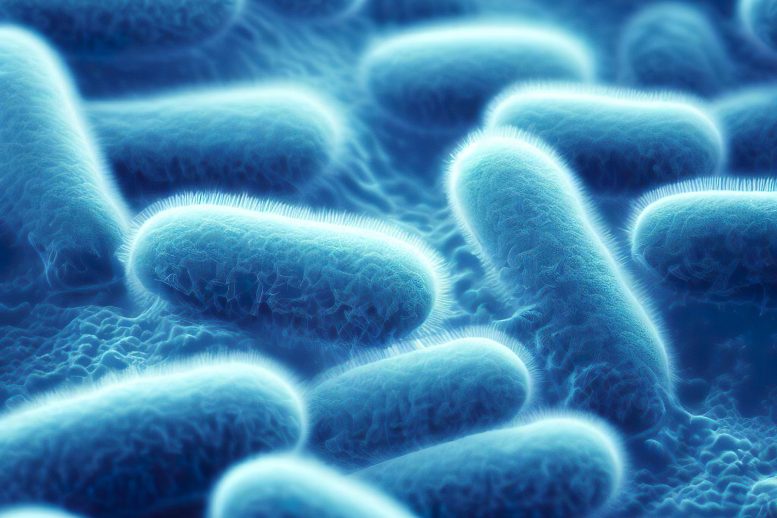
Swiss scientists have discovered cold-adapted microbes capable of breaking down biodegradable plastics at 15°C, which could pave the way for more cost-effective and environmentally friendly plastic recycling.
Biodegradation of plastic at low temperatures can save money and energy.
Researchers have discovered microbial strains in the high altitudes of the Alps and in the polar regions that can break down biodegradable plastics at temperatures as low as 15°C (59°F). These microbes, found in the plastisphere of alpine and arctic soils, could provide a more cost-effective and environmentally friendly approach to recycling plastic. The research team studied 19 strains of bacteria and 15 of fungi, and found that a significant number of them could degrade certain types of plastics. The most successful strains were two uncharacterized fungal species. The next step will be to identify the specific enzymes that enable plastic degradation and optimize their production and stability.
Finding, cultivating, and bioengineering organisms that can digest plastic not only aids in the removal of pollution, but is now also big business. Several microorganisms that can do this have already been found, but when their enzymes that make this possible are applied at an industrial scale, they typically only work at temperatures above 30°C (86°F). The heating required means that industrial applications remain costly to date, and aren’t carbon-neutral. But there is a possible solution to this problem: finding specialist cold-adapted microbes whose enzymes work at lower temperatures.
Scientists from the Swiss Federal Institute WSL knew where to look for such micro-organisms: at high altitudes in the Alps of their country, or in the polar regions. Their findings are published in the journal Frontiers in Microbiology.
“Here we show that novel microbial taxa obtained from the ‘plastisphere’ of alpine and arctic soils were able to break down biodegradable plastics at 15°C,” said first author Dr. Joel Rüthi, currently a guest scientist at WSL. “These organisms could help to reduce the costs and environmental burden of an enzymatic recycling process for plastic.”
Rüthi and colleagues sampled 19 strains of bacteria and 15 of fungi growing on free-lying or intentionally buried plastic (kept in the ground for one year) in Greenland, Svalbard, and Switzerland. Most of the plastic litter from Svalbard had been collected during the Swiss Arctic Project 2018, where students did fieldwork to witness the effects of climate change at first hand. The soil from Switzerland had been collected on the summit of the Muot da Barba Peider (2,979 m) and in the valley Val Lavirun, both in the canton Graubünden.
The scientists let the isolated microbes grow as single-strain cultures in the laboratory in darkness and at 15°C and used molecular techniques to identify them. The results showed that the bacterial strains belonged to 13 genera in the phyla Actinobacteria and Proteobacteria, and the fungi to 10 genera in the phyla Ascomycota and Mucoromycota.
Surprising results
They then used a suite of assays to screen each strain for its ability to digest sterile samples of non-biodegradable polyethylene (PE) and the biodegradable polyester-polyurethane (PUR) as well as two commercially available biodegradable mixtures of polybutylene adipate terephthalate (PBAT) and polylactic acid (PLA).
None of the strains were able to digest PE, even after 126 days of incubation on these plastics. But 19 (56%) of strains, including 11 fungi and eight bacteria, were able to digest PUR at 15°C, while 14 fungi and three bacteria were able to digest the plastic mixtures of PBAT and PLA. Nuclear Magnetic Resonance (NMR) and a fluorescence-based assay confirmed that these strains were able to chop up the PBAT and PLA polymers into smaller molecules.
“It was very surprising to us that we found that a large fraction of the tested strains was able to degrade at least one of the tested plastics,” said Rüthi.
The best performers were two uncharacterized fungal species in the genera Neodevriesia and Lachnellula: these were able to digest all of the tested plastics except PE. The results also showed that the ability to digest plastic depended on the culture medium for most strains, with each strain reacting differently to each of four media tested.
Side-effect of ability to digest plant polymers
How did the ability to digest plastic evolve? Since plastics have only been around since the 1950s, the ability to degrade plastic almost certainly wasn’t a trait originally targeted by natural selection.
“Microbes have been shown to produce a wide variety of polymer-degrading enzymes involved in the break-down of plant cell walls. In particular, plant-pathogenic fungi are often reported to biodegrade polyesters, because of their ability to produce cutinases which target plastic polymers due their resemblance to the plant polymer cutin,” explained last author Dr Beat Frey, a senior scientist and group leader at WSL.
Challenges remain
Since Rüthi et al. only tested for digestion at 15°C, they don’t yet know the optimum temperature at which the enzymes of the successful strains work.
“But we know that most of the tested strains can grow well between 4°C and 20°C with an optimum at around 15°C,” said Frey.
“The next big challenge will be to identify the plastic-degrading enzymes produced by the microbial strains and to optimize the process to obtain large amounts of proteins. In addition, further modification of the enzymes might be needed to optimize properties such as protein stability.”
Reference: “Discovery of plastic-degrading microbial strains isolated from the alpine and Arctic terrestrial plastisphere” by Joel Rüthi, Mattia Cerri, Ivano Brunner, Beat Stierli, Michael Sander and Beat Frey, 10 May 2023, Frontiers in Microbiology.
DOI: 10.3389/fmicb.2023.1178474

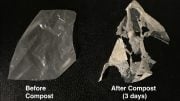
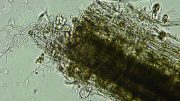

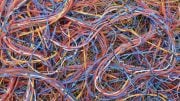
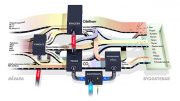
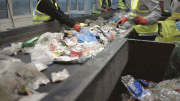
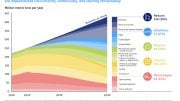

Be the first to comment on "Microbes Discovered in the Alps and Arctic That Can Digest Plastic at Low Temperatures"